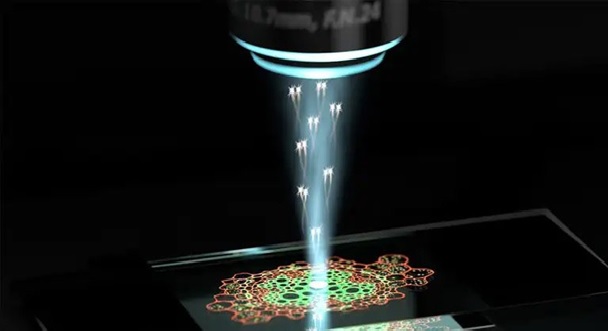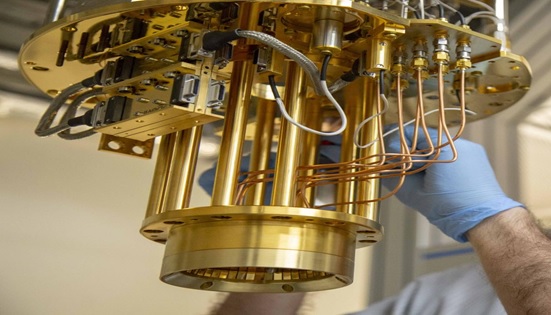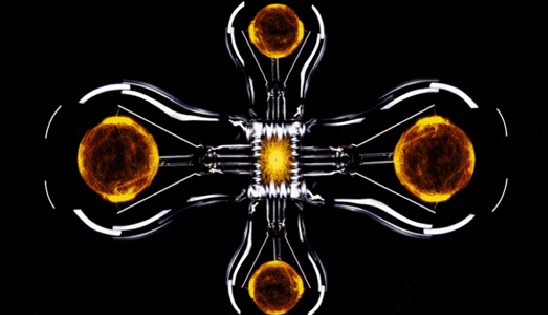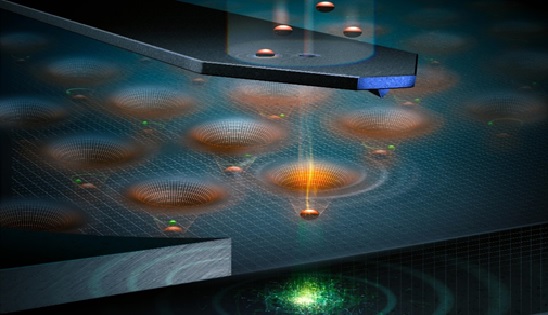A New Platform for Customizable Quantum Devices (Quantum Devices)
Advances in quantum science have the potential to revolutionize the way we live. Quantum computers hold promise for solving problems that are intractable today, and we may one day use quantum networks as hacker proof information highways.
The realization of such forward-looking technologies hinges in large part on the qubit the fundamental component of quantum systems. A major challenge of qubit research is designing them to be customizable,[1] tailored to work with all kinds of sensing, communication and computational devices.

Figure 1. A new platform for customizable quantum devices.
Figure 1 shows quantum devices for circuit. This is a new platform for qubit design. We can use our predictable, controllable, tunable design strategy to create a new quantum system,” said Danna Freedman, MIT professor of chemistry and a co-author of the study. “We’ve demonstrated the broad range of tunability over which these design principles work.
The researchers’ work focuses on a specific group of molecules: those with a central chromium[2] atom surrounded by four hydrocarbon molecules to form a pyramid-like structure.
The molecular qubit advantage:
The qubit is the quantum equivalent of the traditional computing bit. Physically, it may take any of several forms, such as a specially prepared atom inside a crystal or an electrical circuit. It can also be a lab-made molecule. One advantage of a molecular qubit is that, like a tiny 3D-printed gadget, it can be engineered from the bottom up, giving the scientist freedom to tune the qubit for different functions.
The ligand's the thing :
One of the molecular qubit's key tuning dials is the ligand field strength, the strength of the bonds connecting the central metal atom to the surrounding hydrocarbons. "The ligand is fundamentally everything. We can intentionally control the way in which the ligand [3]environment influences the spin and rationally control where the emitted photons end up," said Dan Laorenza, MIT graduate student and lead author of the paper.
Molecule quantum bit dominance :
Qubits are the quantum equivalent of conventional computing bits. Physically, it can be in any of several forms, such as crystals or specially prepared atoms in circuits. It can also be a lab-made molecule. One advantage of themolecular qubit is that, like a tiny 3D-printed gadget, it can be designed bottom-up, giving scientists the freedom to tune the qubit for different functions.
Making Design Rules :
Approaching the design of molecules by focusing on their electronic structure (molecule's energy levels rather than its physical structure) is what the team found key. Researchers can devise a new tunable molecular design criterion that will lay the groundwork[4] for future molecular design. "After demonstrating the accuracy of our computational method for these chromium qubits, We can now use the same approach to simplify the screening process.
References:
- https://daydaynews.cc/en/technology/new-platform-for-customizable-quantum-devices.html
- https://phys.org/news/2022-02-platform-customizable-quantum-devices.html
- https://pme.uchicago.edu/news/new-platform-customizable-quantum-devices
- https://www.pioneeringminds.com/new-platform-customizable-quantum-devices/
Cite this article:
Gunasekar M (2022), A New Platform for Customizable Quantum Devices (Quantum Devices), AnatechMaz, pp.22















